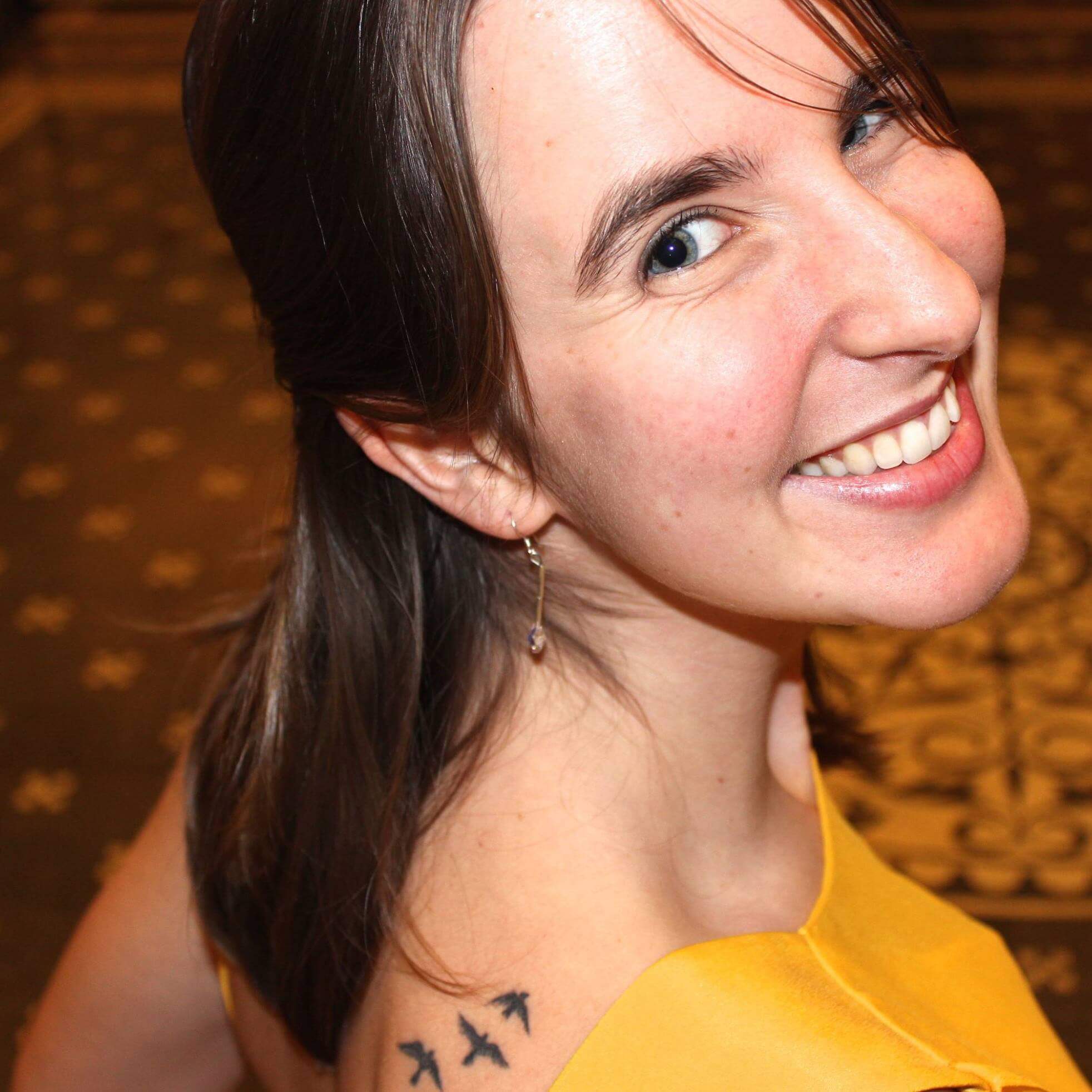We all get tired sometimes, but fatigue is something different, as the Mayo Clinic explains: “Nearly everyone is overtired or overworked from time to time. Such instances of temporary fatigue usually have an identifiable cause and a possible remedy. Unrelenting exhaustion, on the other hand, lasts longer, is more profound and isn’t relieved by rest. It’s a nearly constant state of weariness that develops over time and reduces your energy, motivation, and concentration.” There are many medical reasons that people experience fatigue, and there’s even a syndrome that is specific to the debilitating long-term experience of fatigue (among many other symptoms), chronic fatigue syndrome or myalgic encephalomyelitis (CFS/ME). More than 1 million people live with this condition – and over 84% of people who have it don’t know, making it underdiagnosed and meaning that people are suffering without validation of their struggle or any ways of knowing how to make it better, even in small ways.
There’s a lot of stigma associated with conditions like CFS/ME due to people’s difficulty to wrap their minds around what it would be like to constantly feel like this, and the distinction between tiredness and fatigue is often overlooked. Though I don’t have CFS/ME, I live with constant fatigue due to chronic pain, and I know many people with CFS/ME and other forms of consistent fatigue. I know how hard it is and I see how hard it is. If you are out there feeling low on spoons know that you are not alone, are in fact in good company, and have the ability to improve your situation.

Here are a few of my tips on how to live well, as well as 25 of the most important things I learned at Mayo Clinic’s Pain Rehabilitation Center. There, I learned how to thrive despite debilitating pain and fatigue.
• Practice good sleep hygiene. The link attached has tips about how to ensure that your sleep is as restful as possible. Some of the tips may seem counterintuitive or difficult to incorporate. I remember that when I was told to exercise to help beat chronic pain and fatigue, I almost laughed because I didn’t understand how that could help me. Why would I exercise when I was in pain and so tired? But then I learned how to exercise in a way that worked for me: gently – doing stretches in swimming pools, biking, dancing to music, whatever felt good. If you can find ways to implement these tips in your daily life, over time, they will help you immensely. I sleep better now than I have in years. I used to have a high quantity of sleep, but not high quality. Now, I aim to have nine hours of restful, restorative sleep.
• Simplify your schedule and prioritize your activities and people. Learn to say no to the things you can and want to refuse. Of course, there are certain things about your life that you won’t be able to change or say no to, but when you can, use your discretion and follow your heart. When you have limited energy, or spoons, you have to be thoughtful about who and what you say yes to. Some basic tips: learn to spend your time around people who increase your energy rather than drain it. Give up people and activities that take away from your energy. Let your trusted loved ones know what’s going on in your life, so they are better able to understand when you have to cancel plans. Be patient with others as they adjust. Understand that not everyone will be as empathetic as you hope. You must do what is right for you, and that is final.
• Ask for help from others when you need it. What takes you a lot of energy might be no big deal for someone else. This is not to say that you are weak – you’re absolutely not weak. However, in this way, a friend may be better equipped for the task. Work up your courage and realize that you are a superhero, but that you have limits. You need help. If you see that your house is beginning to look like a mess, ask a friend or two if they will help you clean up. Make it a fun experience – listen to music and repay them with food, friendship, and love. Save your precious energy for the tasks that you alone can do.
• Eat food that doesn’t slow you down any more than the chronic fatigue already does. Notice what foods make you tired. Notice what foods make you uncomfortably wired. Begin to take notice of everything you put into your body and how it makes you feel. Try not to become obsessive about it. Just be mindful. For example, foods that take a long time to digest – fatty, fried, greasy meals – leave your body feeling tired. Aren’t you already tired enough? Maybe try something else. I cut gluten and dairy and saw great results – no longer falling into “food comas” after each meal is a beautiful thing – but these may not be your personal problem areas.
• Talk to an empathetic, understanding, and respectful medical professional and ask for guidance. Rheumatologists, neurologists, psychiatrists, and general practitioners are the best medical bets for help with symptoms like these. Make sure, as much as possible in terms of your insurance coverage and ability to pay, to see someone who is regarded both for their intelligence and for their empathy and bedside manner. Sometimes, with invisible illnesses such as chronic fatigue syndrome and mental health concerns, doctors are not as understanding as we need them to be, so do your homework on them. Ask your doctor what they think could help. Try what you can and what your gut and your research tell you to. Diet changes? Lifestyle changes? Nontraditional medicine? Traditional medicine? It’s all up to you, friend.
• Make sure your mental health gets care and attention, too. See a therapist, if you don’t already, to help talk you through your anxiety-based thoughts. Breaking thought patterns that are no longer serving you is crucial. Learning to change your unhealthy habits, whatever they are, is important as well. Try to meditate or practice mindfulness. Whatever feels right, do it. There are so many great books out there for whatever mental health problems you are struggling with, friend. I highly recommend Brene Brown’s, Jon Kabat-Zinn’s, and Pema Chodron’s books on wholehearted living and mindfulness. Also, Rick Warren, a Christian pastor, has an incredible book called What On Earth Am I Here For? that has helped me find my sense of balance and peace. Ask your friends and practitioners for recommendations if none of these strike your fancy.
• Understand that your definition of “your best” will be different every day. Some days, you will be able to cross all the things off your to do list. Some days, the best you will be able to do is shower. That’s okay. Do your best. This advice is not a call to perfectionism. Perfectionism is dangerous to people both with chronic illness and without. Your best is your best, and it is not the same from day to day. Some days are A+ work days and some days are C- work days. Keep yourself within reasonable, achievable limits based on that day’s amount of energy. And, lastly…
• Be kind to yourself. You have a chance to be your own biggest cheerleader here. I know this seems unlikely and unfortunate when you are frustrated at yourself, but there is enough criticism out there in the world already. You don’t need to add to it! Love yourself and embrace your limitations as much as you can. Frame them as positively as possible. This is hard, and it takes time to adjust. Just know that someday, you will be proud of yourself when it’s an A+ day and be able to laugh at the ridiculousness of a D- day. Remember that you are you and that your worthiness does not depend on how much you get done each day or how well, by society’s standards, you fit the typical images of success. You are you, and you are a unique contribution to the world, no matter what. “Start where you are. Use what you have. Do what you can.” – Arthur Ashe
Much love to you, my friends.







Monday Magic – Inspiring Blogs for You! | Pain Pals
[…] https://sweatpantsandcoffee.com/sweatpants-self-care-8-tips-to-help-you-thrive-while-living-with-cons… […]